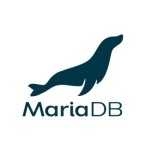What is our primary use case?
We primarily use the solution as a database for business operations.
What is most valuable?
I personally work with Microsoft products and therefore I like the continuity it provides. I like sticking with the brand.
The solution is very stable.
The product has very good online documentation that can be used for troubleshooting.
The solution can scale as necessary.
We've found the setup to be quick and relatively easy.
What needs improvement?
The licensing costs are very high.
I would like the scaling process to be more transparent and obvious.
There's a lot of documentation on the web, and it is quite extensive, and yet it isn't very well organized which makes it hard to find items often.
For how long have I used the solution?
I've been using the solution for a very long time. It's been around ten years or more. I'd say it's been at least a decade at this point.
What do I think about the stability of the solution?
The stability of the solution is quite good. We don't have issues with it. It doesn't crash or freeze. We don't experience bugs or glitches. It's reliable.
What do I think about the scalability of the solution?
While I personally haven't gone beyond 50 or so users, it's my understanding that as long as you pay for the licensing, you can grow as much as you need to. There would be costs involved, however, the solution can scale if a company needs it to.
I'd love to have Microsoft explain to me the scaling process so that I could better understand it. Right now, I'm in the dark.
How are customer service and technical support?
In terms of technical support, I can say that sometimes I need them. However, it's very difficult to contact Microsoft support for anything.
In general, they have none. I wouldn't know how to reach them directly for help if I needed it.
Right now they have good support for their Azure product, in the cloud. However, this is not the case for on-premise products. That means, as an on-premise user, I have a problem. That said, since their product is well-known, there's a lot of documents on the web. If I try to search online I will typically find the answers I need.
How was the initial setup?
The initial setup is not complex. It's pretty straightforward. It takes an hour or less to set everything up. Some people may need a few hours, however, for me, less than an hour was enough. That said, the Windows Server would also take an hour or two to set up as well.
What's my experience with pricing, setup cost, and licensing?
The solution certainly comes at a cost, however, for me, it's an acceptable cost. I find it acceptable due to the fact that it would be free if I use MySQL on-premise, however, then it would be hard to hire people to maintain it. It's a give and take. That said, the license cost is very very high. I'm afraid if I use it on a larger scale it will cost a lot.
What other advice do I have?
Currently, we're just Microsoft customers, although we would like to have a partnership with the company in the future.
I haven't done the HA for SQL server yet, therefore, I'm not sure how hard it is and how difficult it would be to implement, or how stable and how scalable it is.
There are two markets really. It's Microsoft and non-Microsoft. If anyone is familiar with Microsoft products, then they should go with this, however, they should bear in mind that it comes at a cost. The SQL cost is quite high if a company is using it at a large scale.
That said, if a company is looking at something small scale, there is a free edition. I use the standard edition, and it won't cost too much.
In any case, for those that aren't tied to Microsoft options, there are a lot of products out there that might be suitable with very little overhead.
In general, I would rate the solution at an eight out of ten.
Which deployment model are you using for this solution?
On-premises
Disclosure: My company does not have a business relationship with this vendor other than being a customer.














